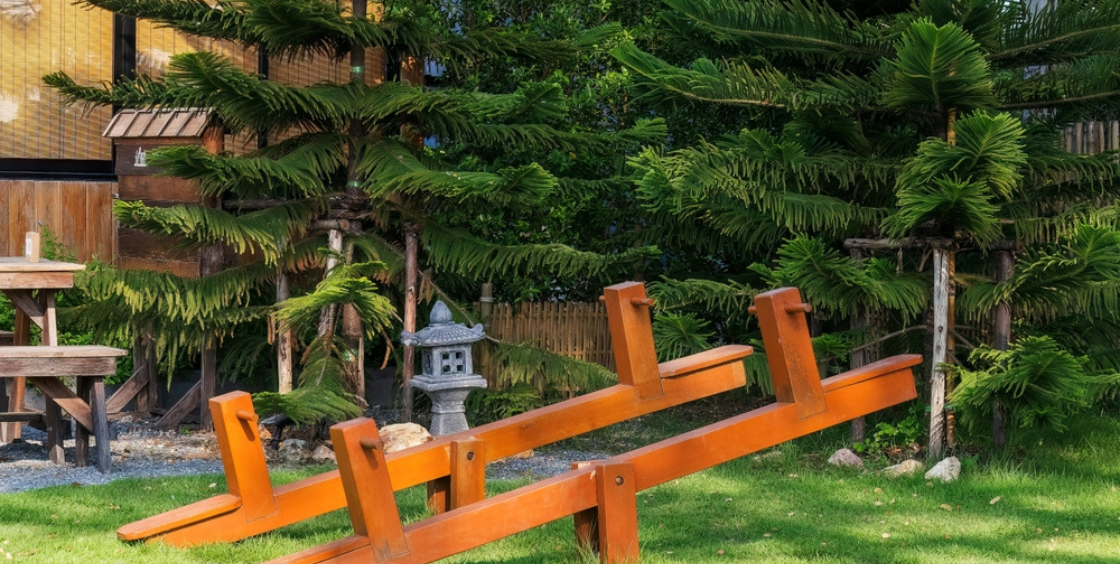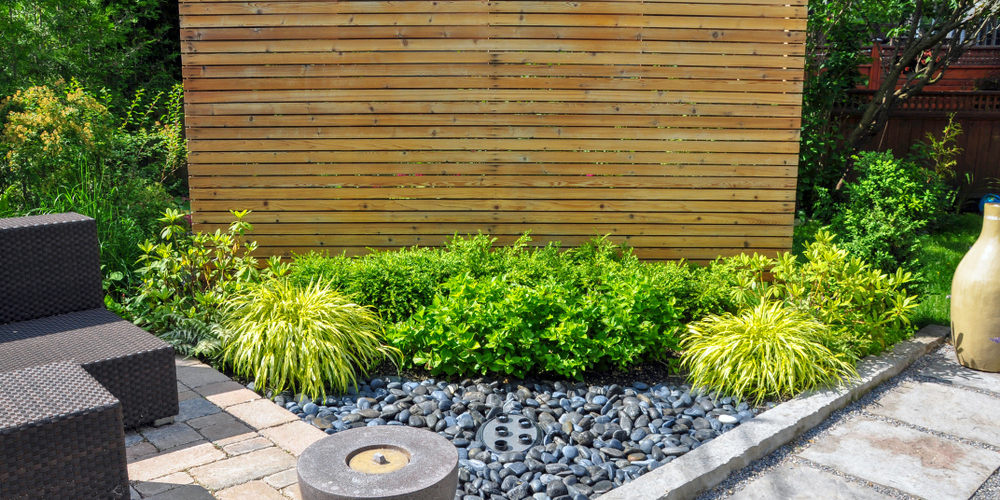
Zen-inspired garden nooks offer you a peaceful environment compared to the hustle and bustle of daily routine. They are truly designed by taking inspiration from Zen-Buddhism which ensures you a peaceful relaxing calm environment. SpendLessy will help you explore some key elements that help contribute to the serene beauty of Zen-inspired garden nooks:
The main characteristic feature of zen gardens lies in their simplicity. Designers create them in a way that prevents the space they occupy from appearing too cramped.
Zen gardens are designed in such a way that they will ensure a state of mindfulness and calmness by removing the distractions around you. This minimalistic approach makes sure the garden remains serene and low maintenance.
The basic foundation of a zen garden is laid by the materials used in the garden. The materials used in the zen garden like rocks, plants, and sand come from natural resources that help the visitors to create a connection with nature.
The key elements in the zen garden are rock and sand. Gravel or sand serves as a replacement for water. Sand or gravel patterns symbolize the ripples in a pond, giving a retreat of mindfulness.
Rock placement is critical as they’re used to symbolize islands and mountains. By careful selection and proper arrangement of rock, we can easily maintain the simplicity of a zen garden.
Zen gardens often change with the seasons. It may require changing the types of plants according to the season. You have the option to include a variety of seasonal decor and items that harmonize with the current season. Furthermore, you can modify the plants to mirror the changing seasons throughout the year, resulting in a rejuvenating appearance.
You also need to maintain sand and gravel with the seasons because they may become discolored with time and start affecting the aesthetics, necessitating replacement.

Zen gardens require lots of special care and attention. They’re the visitor’s sole center of attraction to escape from the worries of daily life and have meditation. The serene beauty of these spaces lies in their ability to create a sense of mindfulness and calm among the visitors.
Not all zen gardens need to have water features but those who have this help it to be more musing.
Whenever the water starts flowing from small ponds, lakes, and water basins it creates a unique sound that gives a soothing effect to the ears of the listeners which is not only a source of auditory appeal but visually as well.
Bamboo and Bonsai can add greenery. Their height is also an advantage giving a fuller look to the garden. Bamboo can create gentle rustling and crackling sounds in the wind which helps with the relaxation of the mind, while bonsai trees provide a sense of composure.
Designers often create Zen-inspired nooks to provide a sense of privacy by carefully placing fences to shield them from the external environment. The tall plant’s height also adds to the privacy.
You can also ensure privacy by installing appropriate locks and alarms if it’s accessible from the outside to protect your valuable items in the garden.
Always select the most comfortable seating arrangement for the visitors where they can easily relax and enjoy the retreats of nature. Try setting up a small chair near the water attraction so the visitors can meditate easily.
If the garden is open during the daytime only you can use warm lighting as it keeps the warm environment. You can also add lanterns or candles that can create a serene and inviting atmosphere for the visitors or guests.
The Zen-inspired Garden nooks provide a sense of calmness and mindfulness among the visitors. The proper lighting, arrangement of trees and rocks, and pebble pathway evoke a deep sense of calm and invite all of us to engage with the present moment. The serene beauty of Zen-inspired garden nooks illustrates the timeless wisdom of Zen philosophy, reminding us of the profound impact of nature’s simplicity on our physical and mental health.